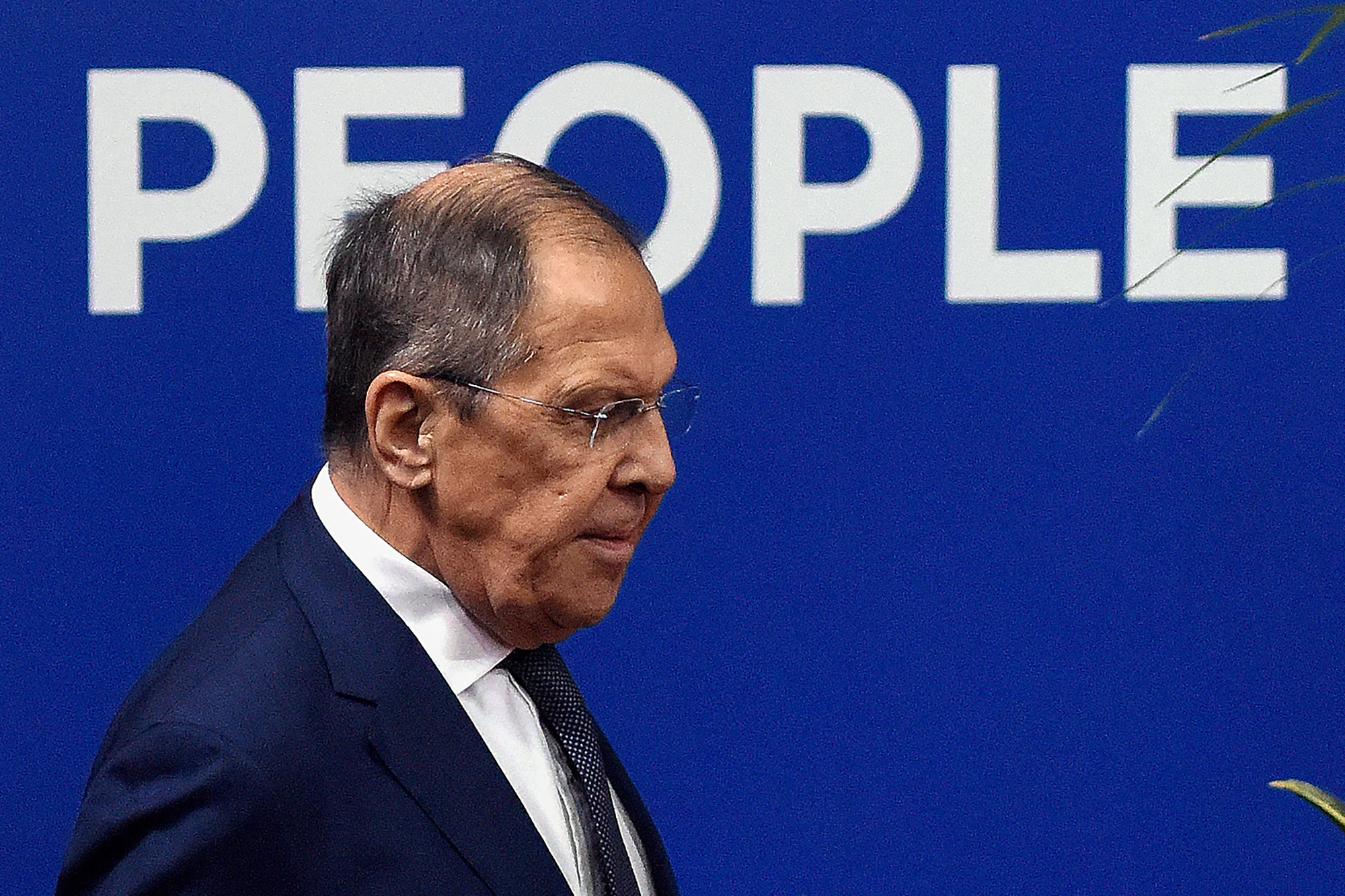Russia Issues Ominous Warning About 'Next Victim'
Russian Foreign Minister Sergey Lavrov seemed to make an implied threat against Moldova amid his country's ongoing war against Ukraine, which the Kremlin continues to claim was perpetrated by the West.
Lavrov said on Thursday that Moldova, an Eastern European country and former Soviet republic, is putting itself in harm's way in its desire to join the European Union . He made the remarks during a ministerial conference held by the Organization for Security and Co-operation in Europe (OSCE), the world's largest regional security organization.
In June 2022, the EU and its member states offered unwavering support for Moldova and granted it candidate status. The support was reaffirmed in March of this year, with the EU and its members promising to continue to provide security and economic support to Moldova as it awaits its path to accession.
"In fact, Moldova is destined to be the next victim in the hybrid war against Russia unleashed by the West." - Lavrov at the OSCE meeting.That confirms that Russia has no intentions to stop at Ukraine unless it is stopped. pic.twitter.com/XBMyPSDJOB — Anton Gerashchenko November 30, 2023
"The Kozak Memorandum, which could have reliably resolved the situation in Moldova 20 years ago, is among the thwarted attempts to resolve the acute problems of our continent on the basis of OSCE principles," Lavrov said. "At that time, NATO and EU Brussels unceremoniously torpedoed the document.... In fact, Moldova is destined to be the next victim in the hybrid war against Russia unleashed by the West."
The Kozak Memorandum was a 2003 plan, proposed by Russia, that attempted to solve relations between Moldova and Transnistria, a separatist region that broke away from Moldova in 1990. The memorandum was ultimately rejected by Vladimir Voronin, then Moldova's president.
Russian Foreign Minister Sergey Lavrov attends the Organization for Security and Co-operation in Europe's ministerial meeting in North Macedonia on Thursday. Lavrov made remarks that appeared to threaten Moldova, which is awaiting acceptance into the European Union. ROBERT ATANASOVSKI/AFP viaOn Thursday, the Moldova Foreign Ministry issued a rebuke to Lavrov's comments, calling Russia's invasion of Ukraine "brutal" and saying that Moldova "has felt the entire arsenal of destabilization attempts that Russia has unleashed against us."
"Russia's statements, whether today or on previous occasions, are part of the series of hostile actions that the Russian Federation has been trying to implement towards our country over the past 30 years," the statement reads. "Fortunately, throughout this time, the partner states in the West have been by our side, helping us to successfully overcome these threats.
The statement went on: "Taking into account that Minister Lavrov still arrived at the OSCE ministerial meeting, we hope that our message—clear and sharp—will be understood by him as well: the Republic of Moldova is going, irreversibly, on the European path and today, more than ever, we insist on the immediate and unconditional withdrawal of Russian troops from our territory."
Newsweek reached out by email to the Moldovan and Russian foreign ministries, as well as the EU and the OSCE, for comment.
On November 24, Russian officials chastised Moldova and threatened to retaliate after its parliament voted to join the EU sanctions against Russia in connection with the war in Ukraine. Moldova's move is part of moves to change legislation so it can make a bid to join the EU.
Anton Gerashchenko, an adviser to Ukraine's Ministry of Internal Affairs, wrote on X (formerly Twitter ) that Lavrov's comments "confirm that Russia has no intentions to stop at Ukraine unless it is stopped."
Mikhail Troitskiy, professor of practice at the University of Wisconsin-Madison, told Newsweek that Lavrov's comments "double down" on Russia's view that it was encouraged or forced to invade Ukraine because that nation was moving closer to NATO admittance.
Lavrov's new remarks may prove to be a bigger red line, he added, with not just NATO admittance but acceptance into the EU now considered unacceptable by Russia.
"Lavrov implies that the problem with Moldova for Russia is also that Moldova and its Western partners are squeezing Russia out of the Transnistria process," Troitskiy said. "But unlike the Donbas secessionist republics in eastern Ukraine, Transnistria has never been hyped up by Russia as a major security challenge to the 'Russian world,'" Troitskiy said.
"It is therefore natural that Moldova takes it as a threat similar to the one Moscow issued to Kyiv in early 2022," he said.










